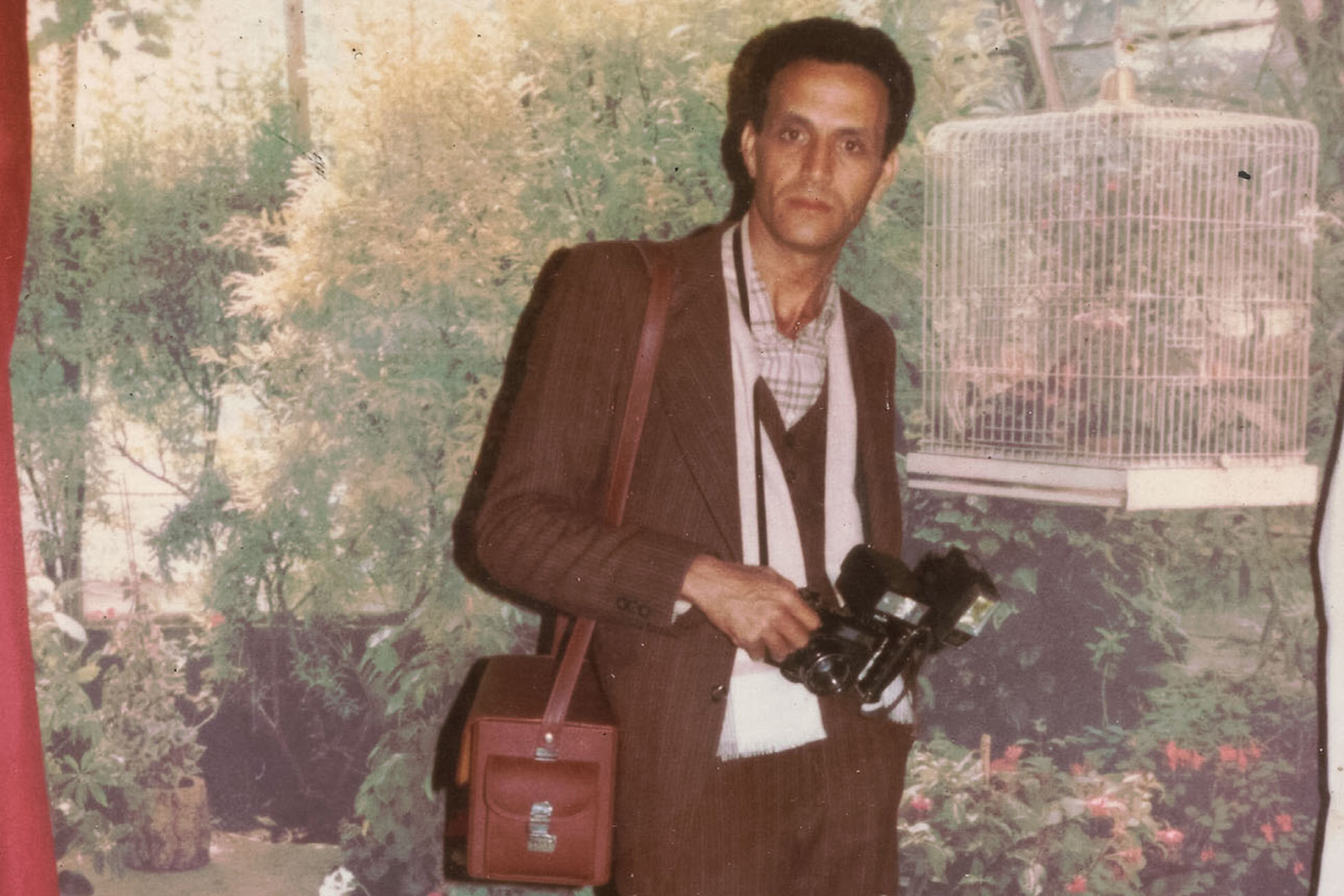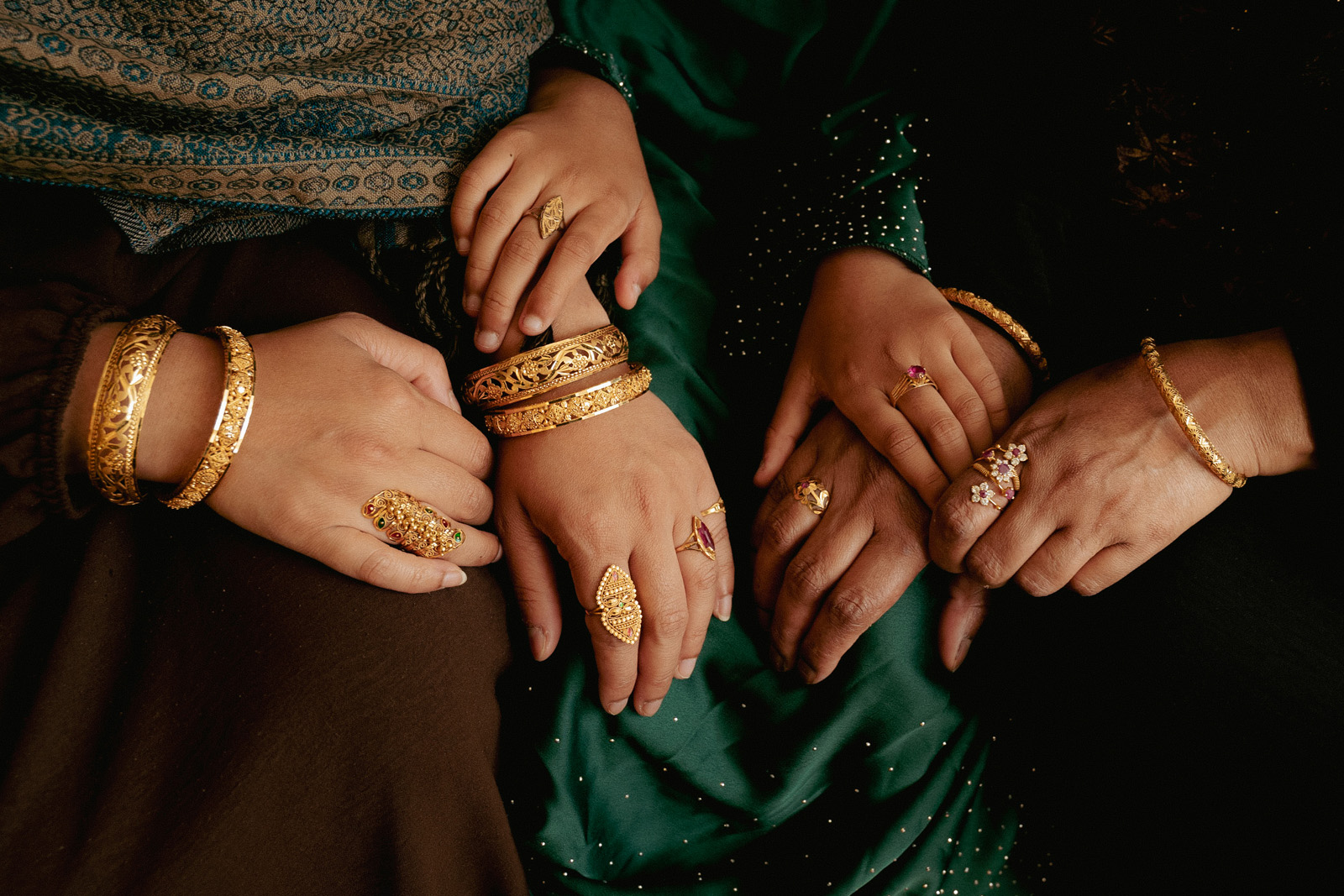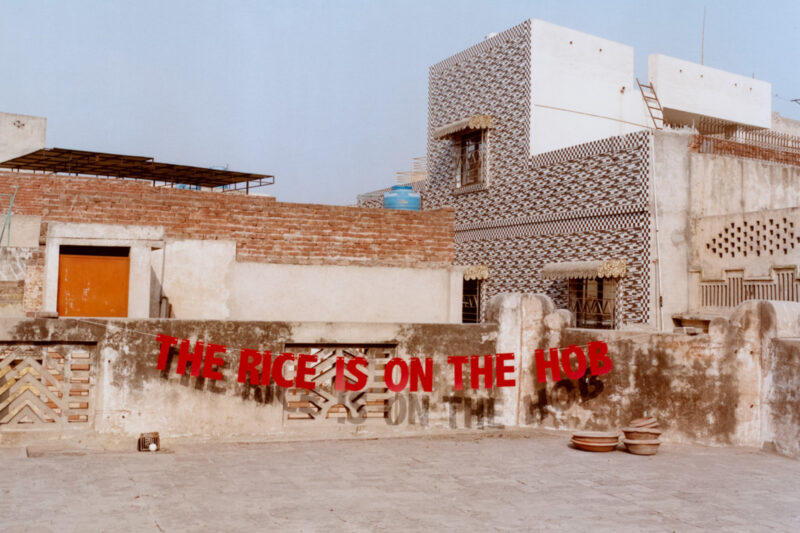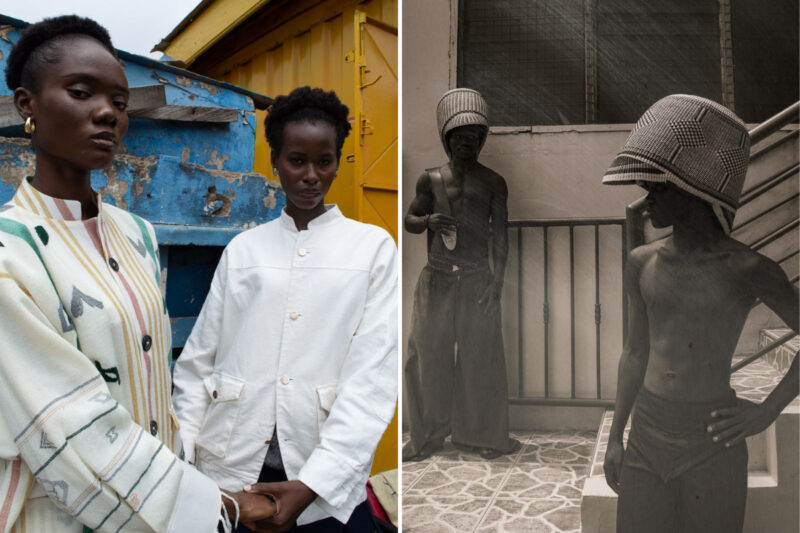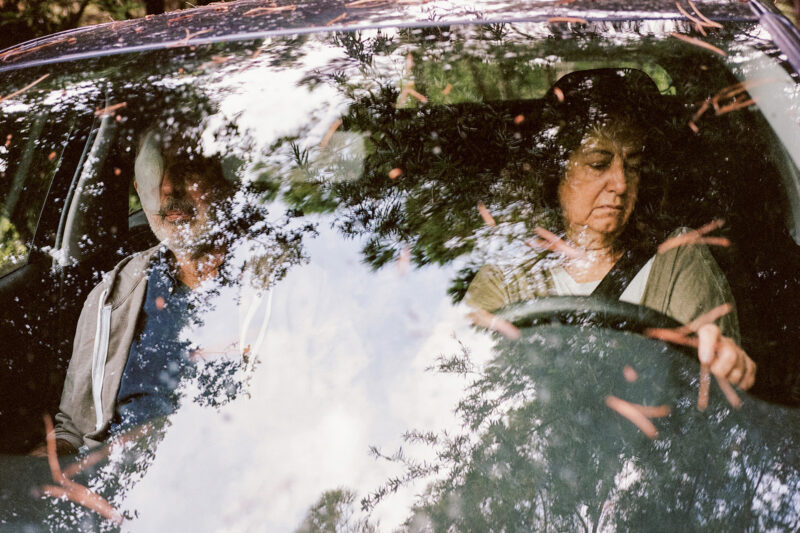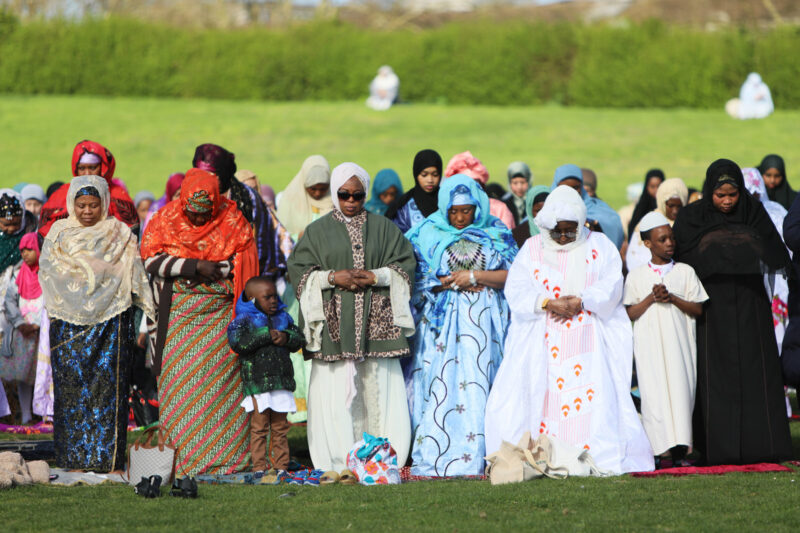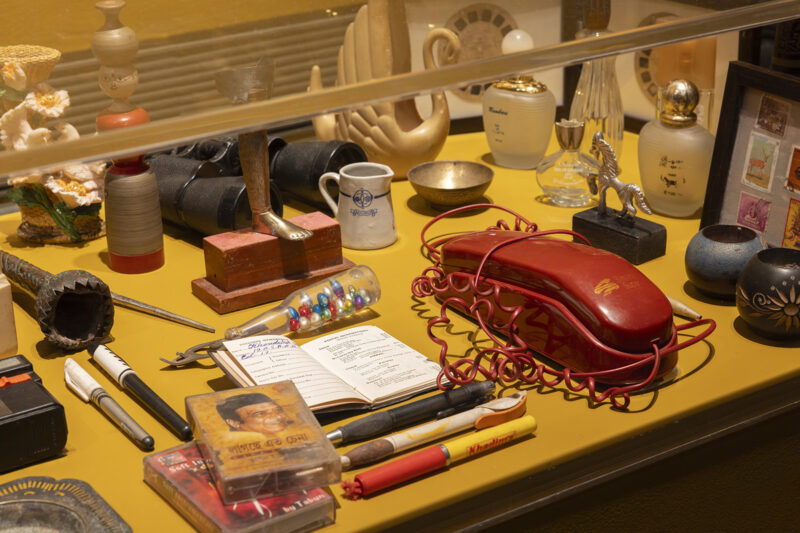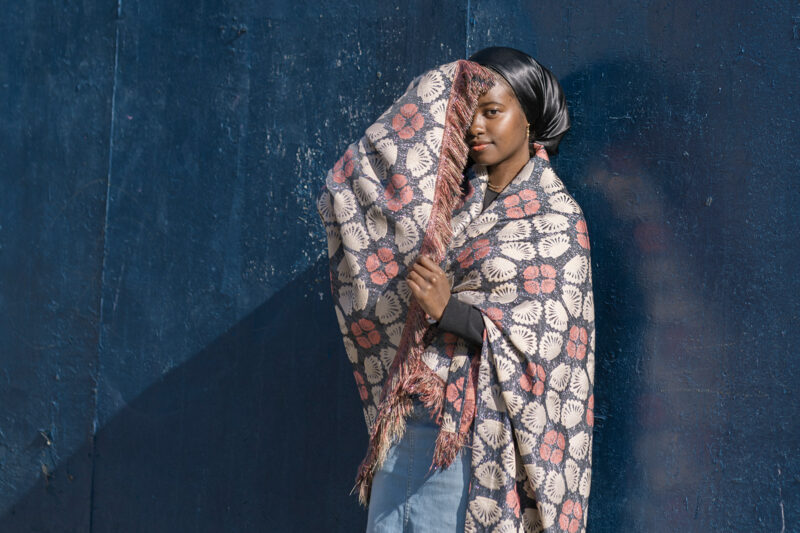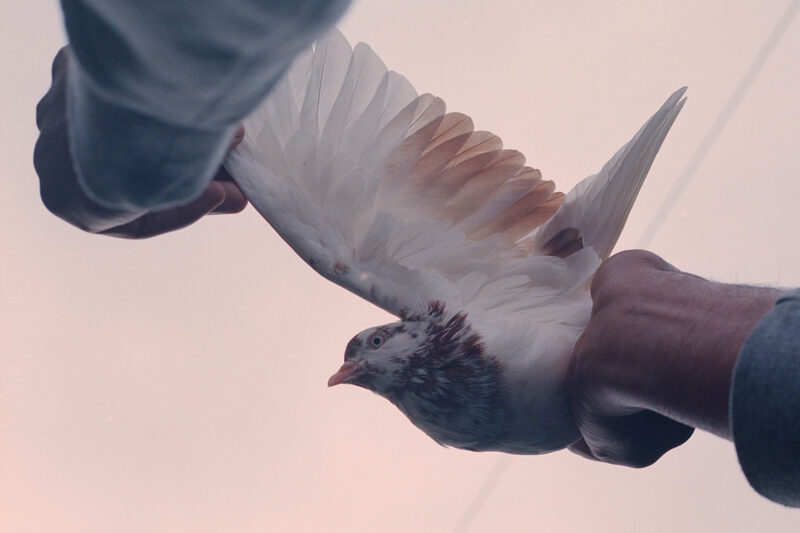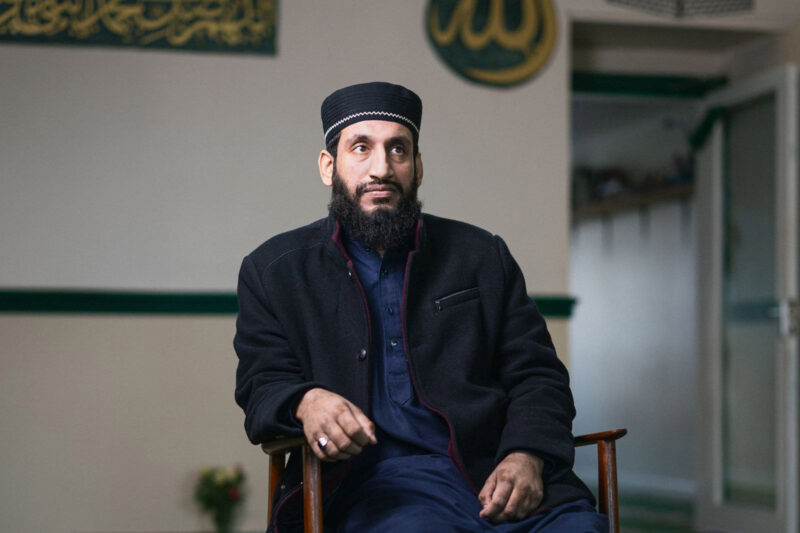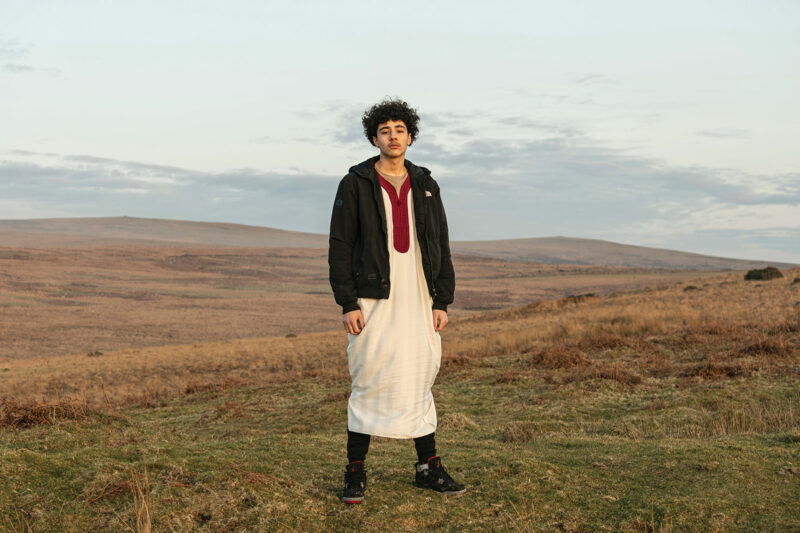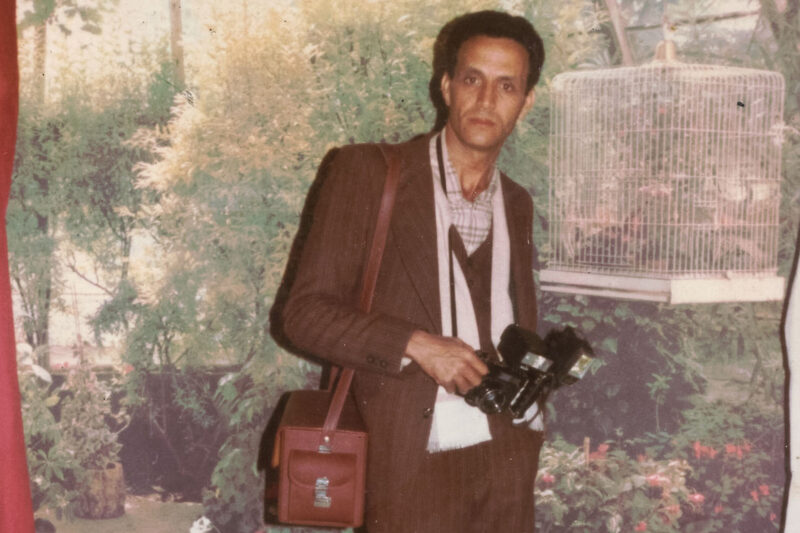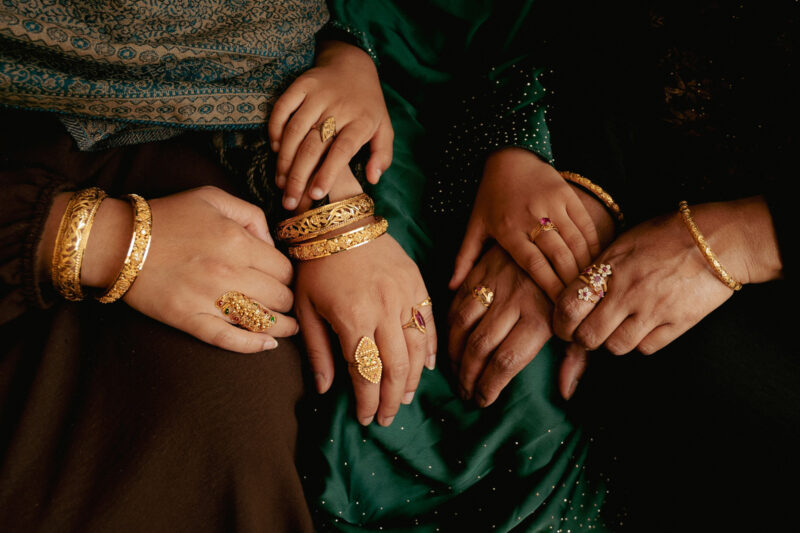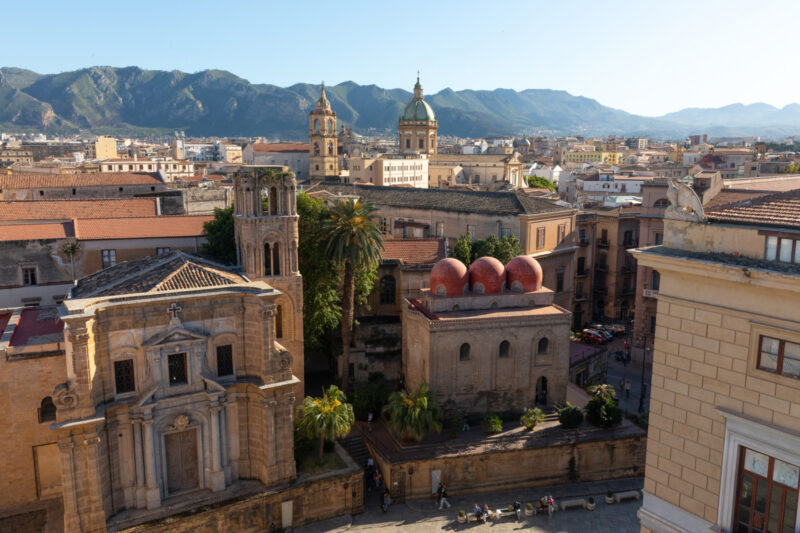Friday prayer and fish and chips: portraits of Babaji’s Britain
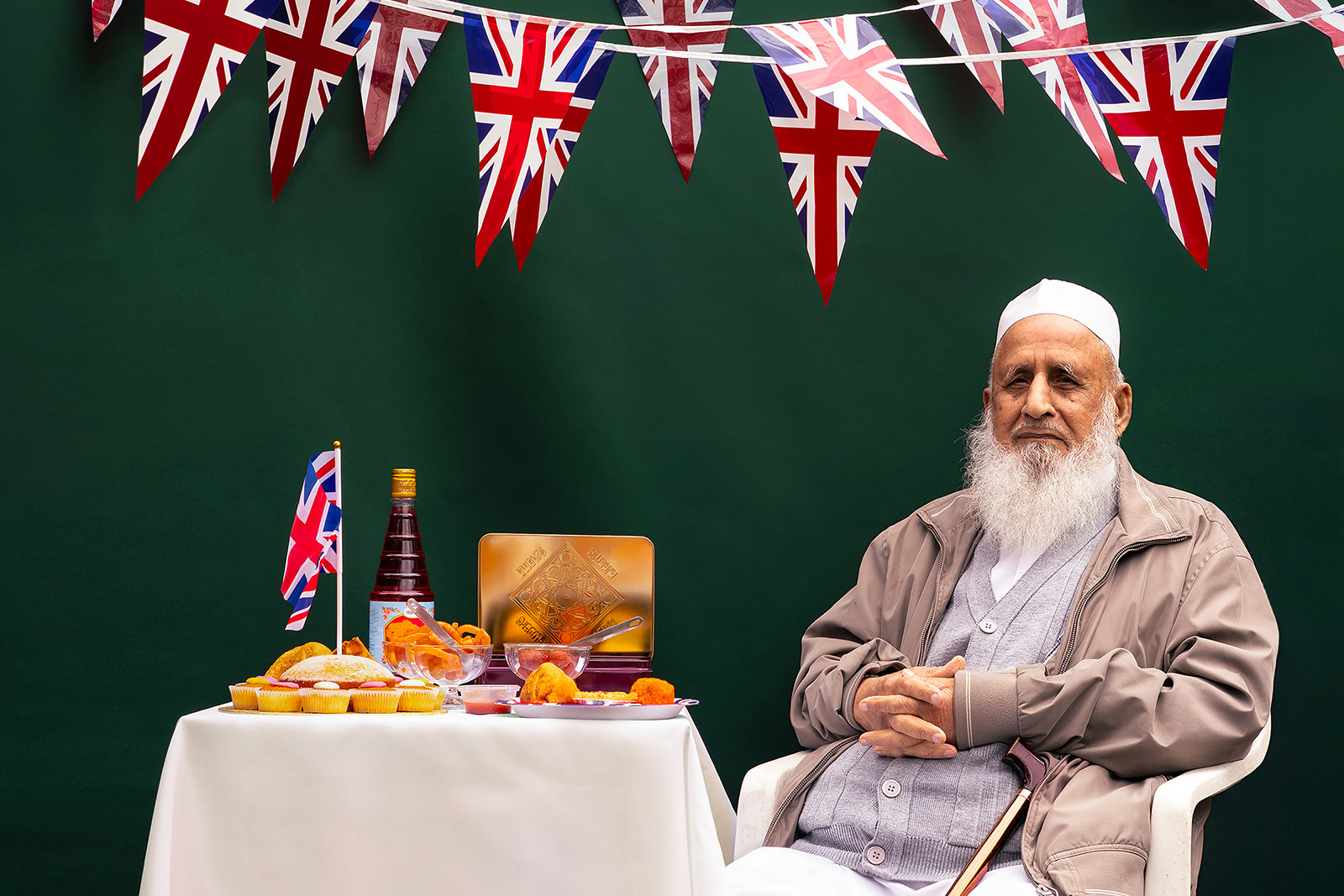
Photography series by Shizza Majeed shows a Pakistani grandfather’s life in London
Shizza Majeed has seen her grandfather almost every day of her life, observing his quirks, learning about his interests and the habits that make him who he is.
Last year, the photographer embarked on a project in collaboration with her grandfather, Ghulam Abbas, as an act of preservation. Babaji’s Britain tells his personal story of belonging as a Pakistani man who moved to Britain in the 1960s.
Abbas emigrated in 1962, aged 23, settling near High Wycombe before moving to the capital. He lives in east London, just up the road from Majeed.
“One day I was just watching him and I realised how much older he was getting, and that I would regret not spending this time doing something that I love with him,” says Majeed of the motivations behind the photo series.
Inspired by 18th-century portraiture, particularly William Hoare’s Portrait of Ayuba Suleiman Diallo (1733), Majeed set out to frame each photograph like a portrait painting, keeping the images minimal in composition.
“When an artist paints, they think carefully about every detail, visualising the final image. It’s a slower, more deliberate process. In that same way, portraying my grandfather in this style feels like my own act of reclamation, a way of honouring his identity and presence through the language of art,” she adds.
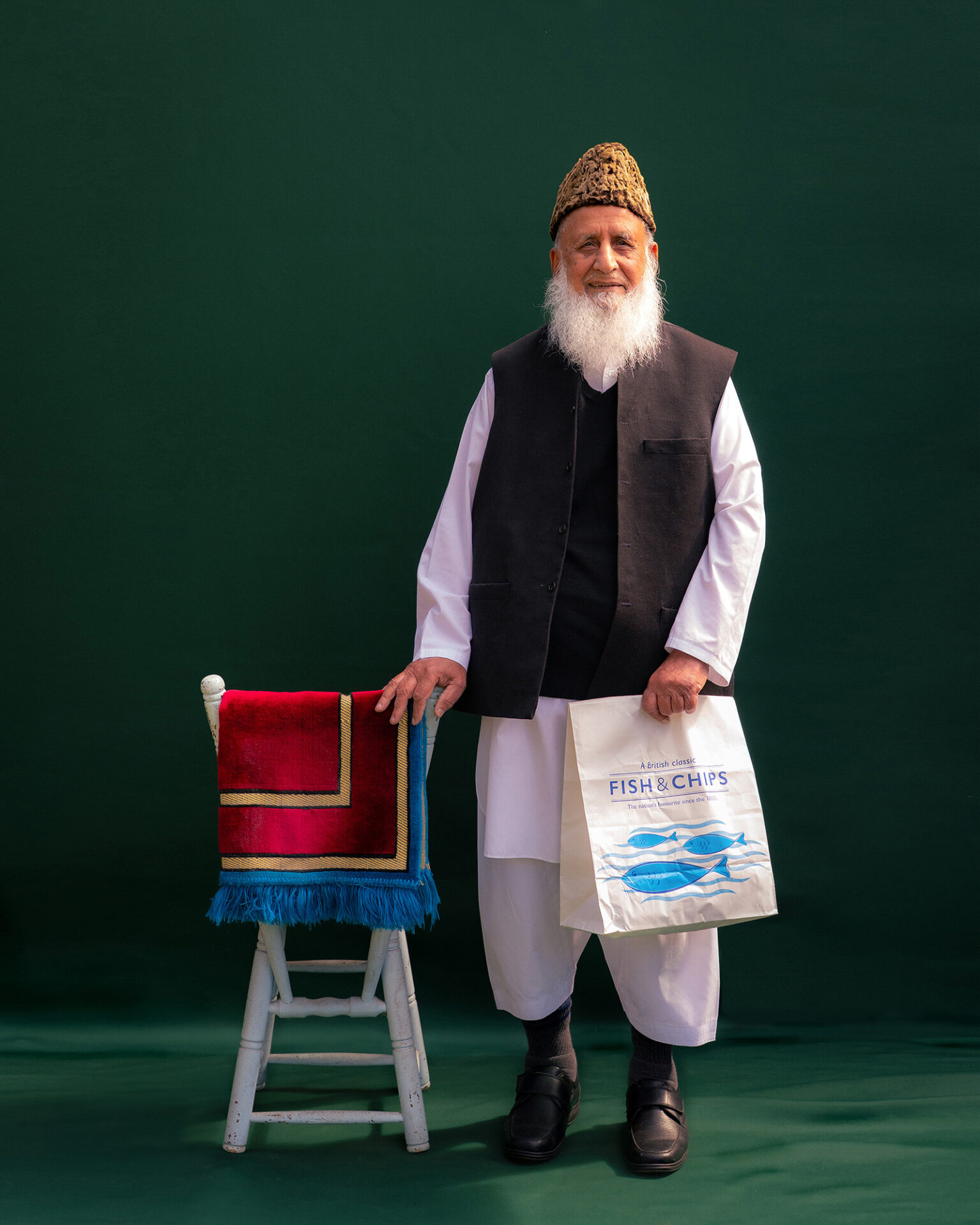
She frequently returns to Hoare’s painting. “It portrays a Muslim man of colour in a traditional European style of art, something rarely seen at the time. It feels like an act of reclamation, a dignified reimagining of presence within a space that once excluded people like him.”
Similarly, in Bajabi’s Britain, Majeed tries to commemorate each aspect of her grandfather’s identity, referencing his love of sports, food, prayer and gardening, merging his two identities as an immigrant in Britain.
“At first, he was a little bit nervous, being the centre of attention, a little bit shy, but then he really got involved in how to pose, what you could do with different items or, you know, what clothes he wanted to wear,” she says. “That’s really when his voice came alive.”
In the photograph titled Cherry Bakewells, Angel Slices and Gulab Jamun, her grandfather sits next to a spread of Pakistani delicacies such as gulab jamun and jalebi. Above, Abbas hangs Union Jack bunting, the portrait referencing a British street party scene.
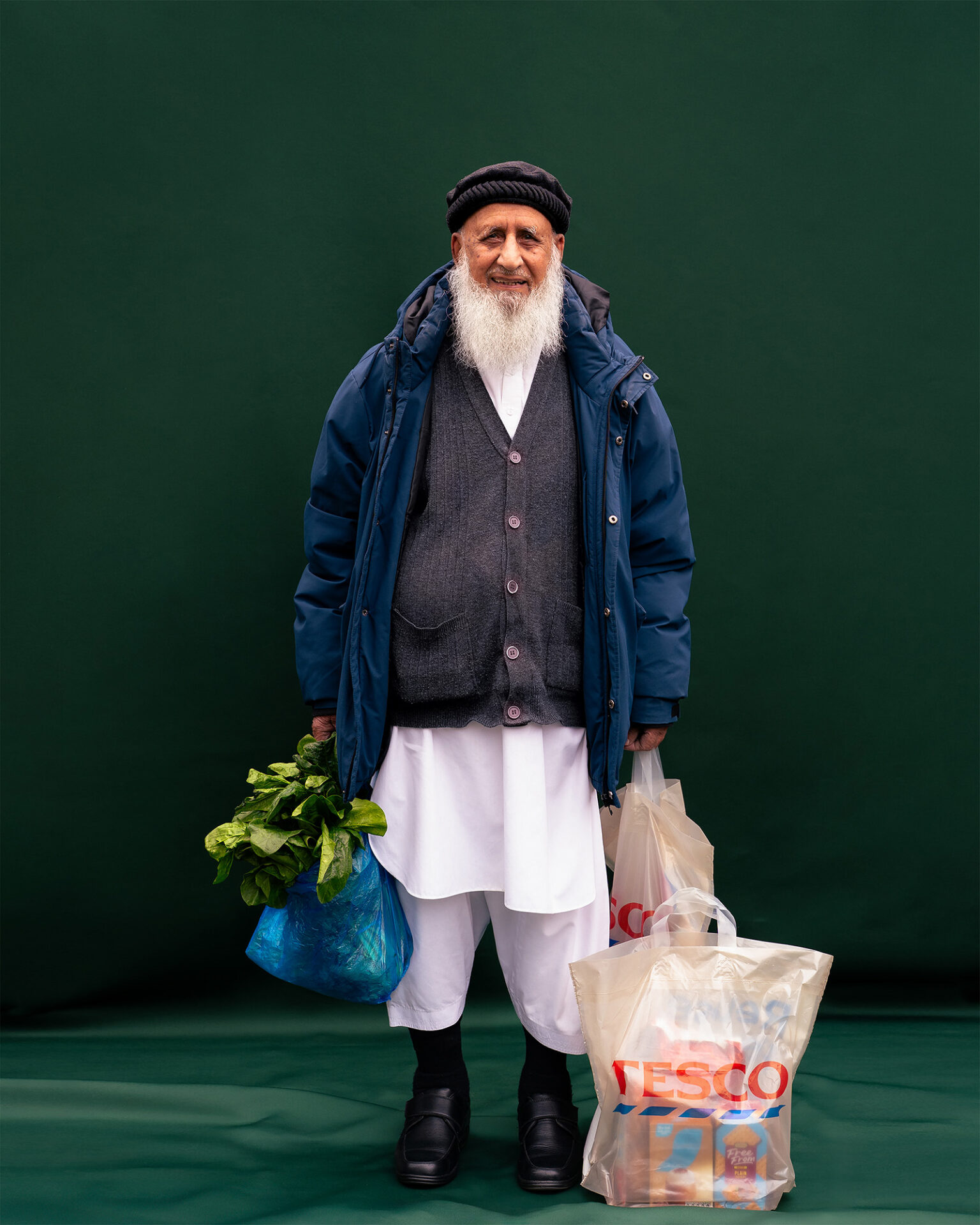
“The image isn’t saying that he eats his own food because he doesn’t want to embrace English food but, rather, it’s about what he brings to the table, and what he brings into our family,” she says.
Many of the props chosen for the portraits feel playful, such as the contrasting shopping bags in A Familiar Taste, one of 200 images shortlisted for A Portrait of Britain 2025. In this portrait, Abbas holds fresh produce from a local Pakistani shop in one hand, and a shopping bag from Tesco in another — reflecting the daily reality for many Pakistani immigrants.
In one image, we see Abbas’s weekly ritual: his dedication to Islam and his love for fish and chips. “He always goes to the mosque on a Friday, and gets a bag of fish and chips or chicken and chips after. It’s been like that since I was a kid,” says Majeed.
In Three Lions, the contrasting nations are at the forefront of the portrait, as Majeed chooses for her grandad to have the St George’s flag draped around his back.
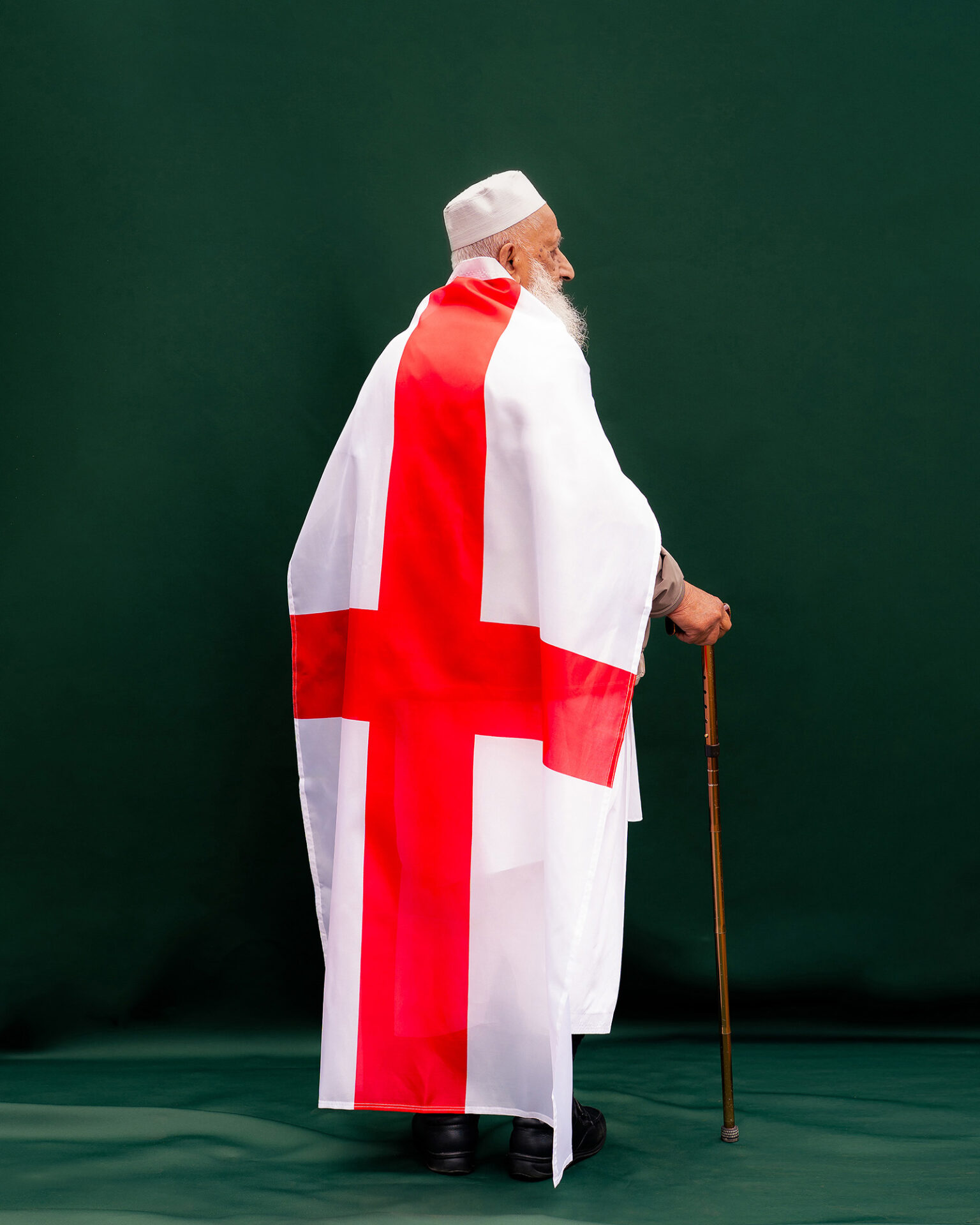
“It’s not usual to go out on to the street and see a Pakistani man with the St George’s flag wrapped around him. That’s not something you see every day. I wanted the images to be humorous,” she says, as “the St. George’s flag has been weaponised to target a certain group.”
The photograph, taken originally in June, drew additional significance in September with the appearance of British and English flags on streets across the country. While supporters saw the display as an expression of national pride, many associated it with rising anti-immigrant rhetoric and racism.
“Rather than a reclamation of the flag to signify ‘this is our flag’, Three Lions is more an irony, drawing attention to Saint George being an immigrant himself,” says Majeed.
It is the only image where he’s not looking at the audience. “He’s not looking at the viewer, because he doesn’t need to tell the viewer he belongs here. He knows he belongs here, he knows he’s British.
“It goes against everything that the media says about Pakistanis, about Muslims and about immigrants in general.”
Majeed adds: “I wanted this project to be lighthearted. It’s showing my grandad’s success story. He made the move when he was 23 and has no regrets.”
Majeed is a finalist in the 2025 Association of Photographers Emerging Talent Awards. One of the portraits is on show as part of Autograph Gallery’s outdoor display, Small Stories of Diasporic Experience.
 Newsletter
Newsletter


